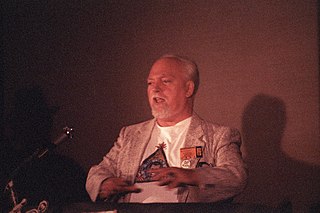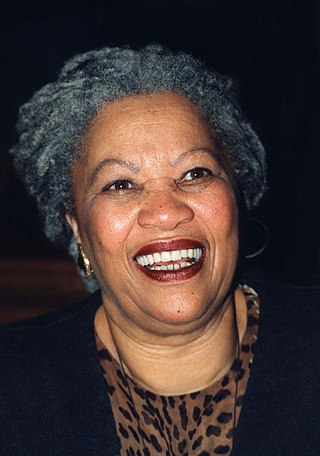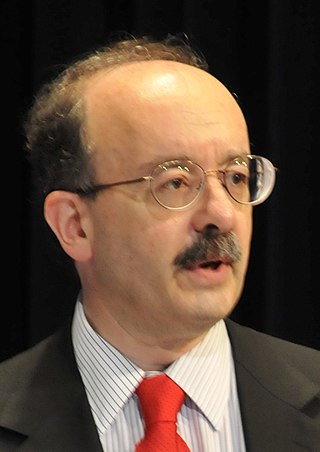Giles Slade is a Canadian freelance writer and social critic, best known as author of Made to Break: Technology and Obsolescence in America.
He was born in Ottawa, Ontario, Canada, and educated at Mutchmore Public School. Slade trained as a journalist, and also worked for a time for Harlequin Enterprises, writing adventure novels. He studied at the University of Southern California, defending his doctorate in cultural history. Slade lived and worked in the United States of America for many years. After earning his doctorate he taught at colleges and universities internationally, throughout Asia and the Persian Gulf, for another decade. He returned to Canada with his family and settled in British Columbia (2002).
His 2006 book, Made to Break: Technology and Obsolescence in America, documents the history of the planned obsolescence phenomenon in America. It won the International Publisher's Gold Medal (IPPY award) for best Environment/Ecology/Nature book of 2007, and the resulting media interest of some 200+ high profile interviews helped to spread his ideas. The book was released in a paperback edition in October 2007.
The documentary film The LightBulb Conspiracy is based in part on Giles Slade’s Made To Break: Technology and Obsolescence in America, and includes an interview with the author. It was made by Spanish filmmaker Cosima Dannoritzer and both broadcast on television in Europe, then shown at film festivals (including DOXA in Vancouver, 2012).
Slade wrote a column for Huffington Post from 2007 to 2011, and continues to publish critical perspectives and commentary in a variety of popular journals.

Robert Anton Wilson was an American author, futurist, psychologist, and self-described agnostic mystic. Recognized within Discordianism as an Episkopos, pope and saint, Wilson helped publicize Discordianism through his writings and interviews. In 1999 he described his work as an "attempt to break down conditioned associations, to look at the world in a new way, with many models recognized as models or maps, and no one model elevated to the truth". Wilson's goal was "to try to get people into a state of generalized agnosticism, not agnosticism about God alone but agnosticism about everything."

Chloe Anthony Wofford Morrison, known as Toni Morrison, was an American novelist. Her first novel, The Bluest Eye, was published in 1970. The critically acclaimed Song of Solomon (1977) brought her national attention and won the National Book Critics Circle Award. In 1988, Morrison won the Pulitzer Prize for Beloved (1987); she was awarded the Nobel Prize in Literature in 1993.

Margaret Eleanor Atwood is a Canadian poet, novelist, literary critic, essayist, teacher, environmental activist, and inventor. Since 1961, she has published 18 books of poetry, 18 novels, 11 books of non-fiction, nine collections of short fiction, eight children's books, and two graphic novels, and a number of small press editions of both poetry and fiction. Atwood has won numerous awards and honors for her writing, including two Booker Prizes, the Arthur C. Clarke Award, the Governor General's Award, the Franz Kafka Prize, Princess of Asturias Awards, and the National Book Critics and PEN Center USA Lifetime Achievement Awards. A number of her works have been adapted for film and television.

Amory Bloch Lovins is an American writer, physicist, and former chairman/chief scientist of the Rocky Mountain Institute. He has written on energy policy and related areas for four decades, and served on the US National Petroleum Council, an oil industry lobbying group, from 2011 to 2018.
In economics and industrial design, planned obsolescence is a policy of planning or designing a product with an artificially limited useful life or a purposely frail design, so that it becomes obsolete after a certain pre-determined period of time upon which it decrementally functions or suddenly ceases to function, or might be perceived as unfashionable. The rationale behind this strategy is to generate long-term sales volume by reducing the time between repeat purchases. It is the deliberate shortening of a lifespan of a product to force people to purchase functional replacements.
The Farewell Dossier was the collection of documents that Colonel Vladimir Vetrov, a KGB defector "en place", gathered and gave to the Direction de la surveillance du territoire (DST) in 1981–82, during the Cold War.
Witold Rybczynski is a Canadian American architect, professor and writer. He is currently the Martin and Margy Meyerson Professor Emeritus of Urbanism at the University of Pennsylvania.

Allan Ezra Gotlieb was a Canadian public servant and author who served as the Canadian Ambassador to the United States from 1981 to 1989.

Peter Louis Galison is an American historian and philosopher of science. He is the Joseph Pellegrino University Professor in history of science and physics at Harvard University.

Paul Hoffman is the president and CEO of the Liberty Science Center in Jersey City, New Jersey. He is also a prominent author, science educator, food entrepreneur, Moth storyteller, and host of the PBS television series Great Minds of Science.

Howard Scott was an American engineer and founder of the Technocracy movement. He formed the Technical Alliance and Technocracy Incorporated.

Joseph J. Romm is an American author, editor, physicist and climate expert, who advocates reducing greenhouse gas emissions to limit global warming and increasing energy security through energy efficiency, green energy technologies and green transportation technologies. Romm is a Fellow of the American Association for the Advancement of Science. In 2009, Rolling Stone magazine named Romm to its list of "100 People Who Are Changing America", and Time magazine named him one of its "Heroes of the Environment (2009)", calling him "The Web's most influential climate-change blogger".

Simcha Jacobovici is an Israeli-Canadian journalist and documentary film maker.
Cathleen "Cathy" Scott is a Los Angeles Times and New York Times bestselling American true crime author and investigative journalist who penned the biographies and true crime books The Killing of Tupac Shakur and The Murder of Biggie Smalls, both bestsellers in the United States and United Kingdom, and was the first to report Shakur's death. She grew up in La Mesa, California and later moved to Mission Beach, California, where she was a single parent to a son, Raymond Somers Jr. Her hip-hop books are based on the drive-by shootings that killed the rappers six months apart in the midst of what has been called the West Coast-East Coast war. Each book is dedicated to the rappers' mothers.

Docufiction is the cinematographic combination of documentary and fiction, this term often meaning narrative film. It is a film genre which attempts to capture reality such as it is and which simultaneously introduces unreal elements or fictional situations in narrative in order to strengthen the representation of reality using some kind of artistic expression.

Peter Swirski is a Canadian novelist, scholar, and literary critic featured in Canadian Who's Who. He is the author and editor of 19 nonfictions, including the prize-winning Ars Americana, Ars Politica (2010) and the staple of American popular culture studies From Lowbrow to Nobrow (2005). His other studies include American Utopia and Social Engineering (2011), American Political Fictions (2015), American Utopia: Literature, Society, and the Human Use of Human Beings, and the digital-futurological bestseller From Literature to Biterature (2013). He is also the leading authority on the late writer and philosopher Stanisław Lem.

Richard Foltz is a Canadian scholar of American origin. He is a specialist in the history of Iranian civilization—what is sometimes referred to as "Greater Iran". He has also been active in the areas of environmental ethics and animal rights.

A Free Ride, also known as A Grass Sandwich, is a stag film of the silent era, considered the earliest extant American hardcore pornographic movie. It depicts a motorist who picks up two women from the roadside and later engages in several sex acts with them. Although most scholars consider A Free Ride a 1915 film, some sources claim that it was produced later. The film's director used a pseudonym and the cast remained anonymous. The filming location is not known, although it may have been produced in New Jersey. Two contradictory theories have emerged regarding the identities of the cast: some sources suggest they were people with low social status, but others assert the opposite. The Kinsey Institute has a print of the film in its collection. A Free Ride was screened at the inauguration of the Museum of Sex. In 2004, Lisa Oppenheim, a New York-based artist, remade the film.

Bernard London was an American real estate broker known for his 1932 paper Ending the Depression Through Planned Obsolescence. Scholars credit him with coining the term "planned obsolescence".














